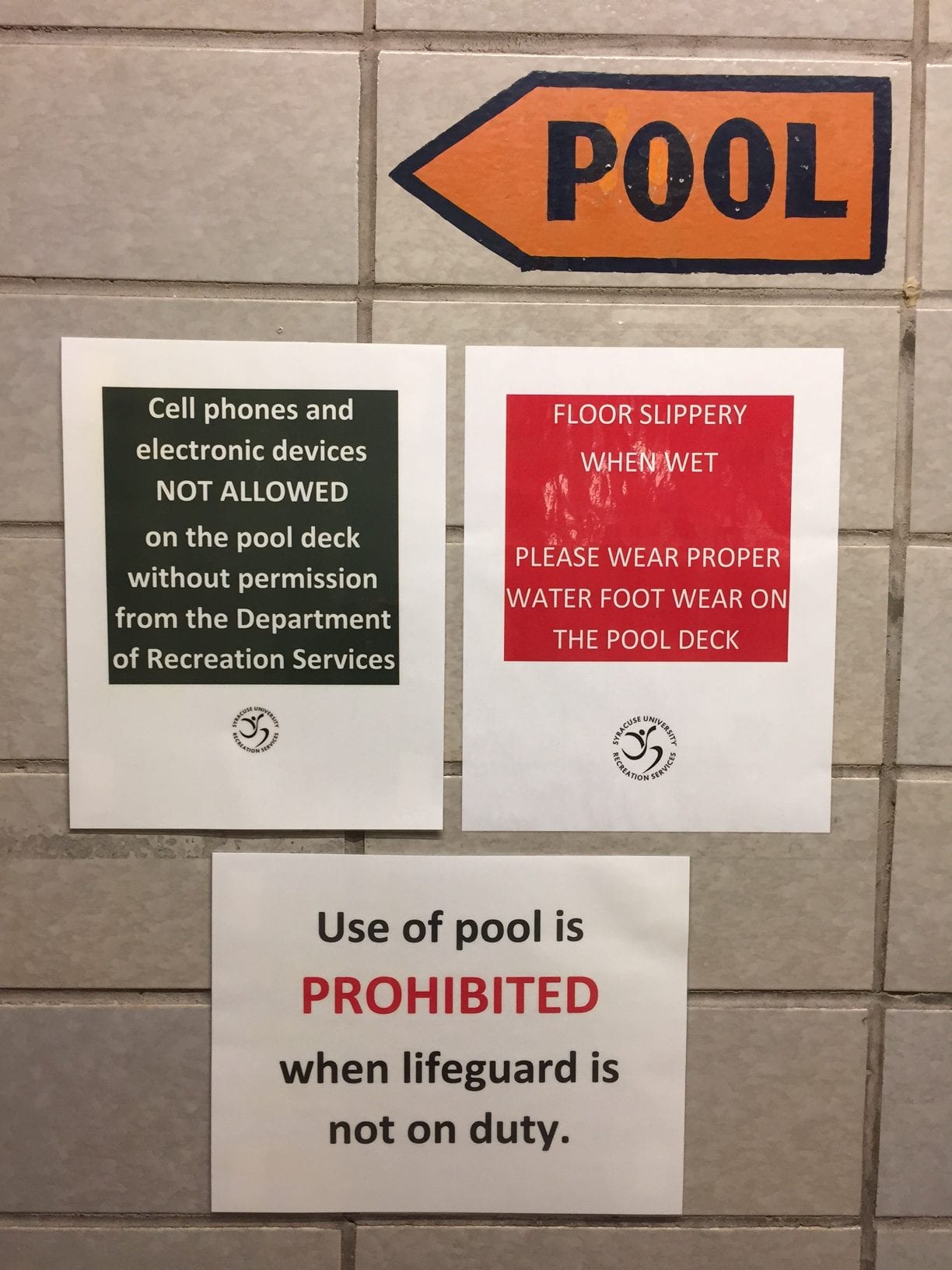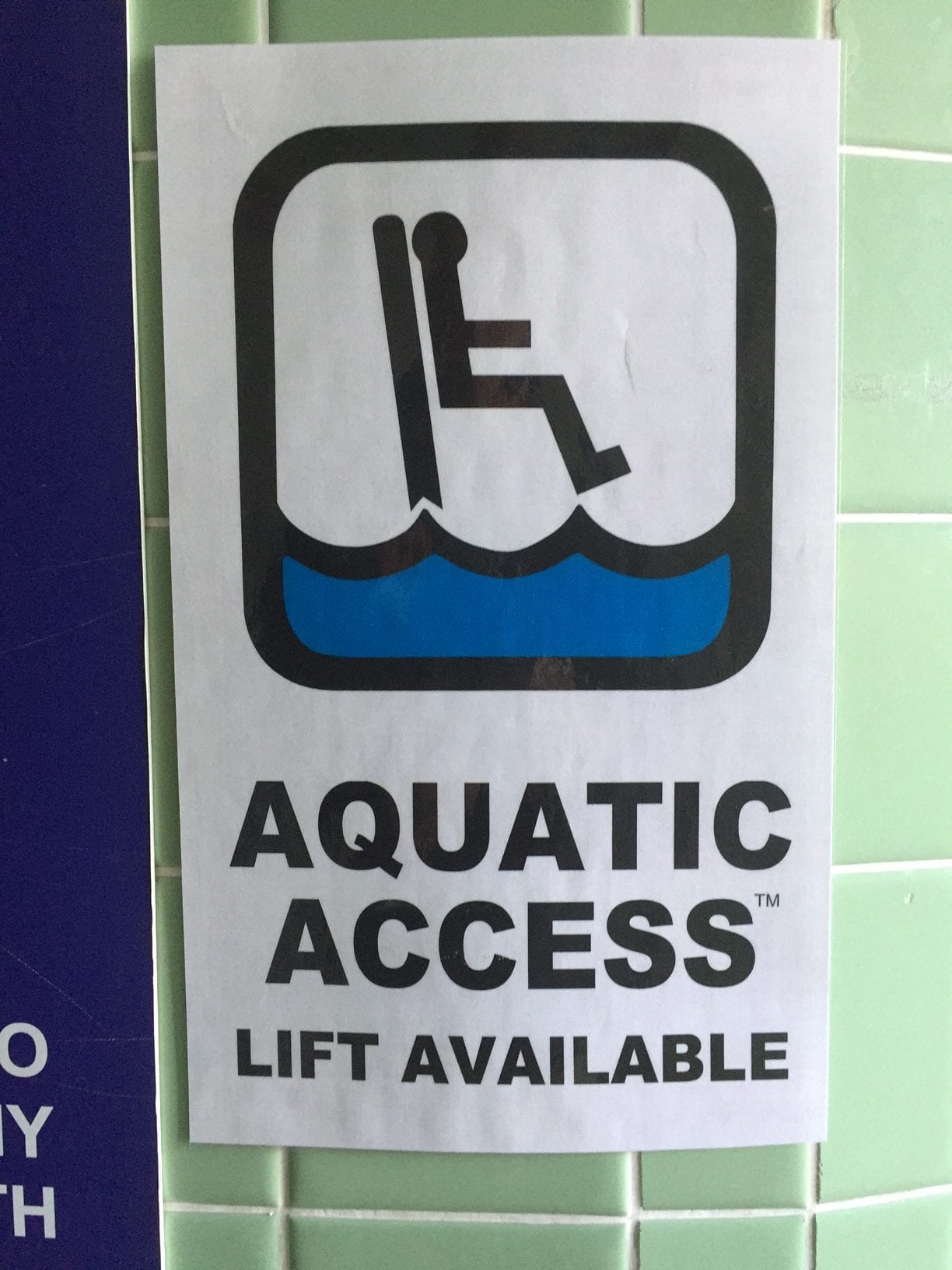Collegiate recreation facilities offer varying, innovative forms of weight and cardiovascular training equipment. An essential workout option within the recreation center is the aquatics facility, a popular form of physical activity for individuals of all health and fitness-related needs. Recreation professionals must ensure the facility complies with all state and local government regulations in order to provide the safest environment possible.
While guidelines vary by state, it is imperative pool managers develop a safety protocol to ensure compliance and avoid unwanted failed pool inspections. Management should review their state Department of Health’s guidelines regarding sanitary codes, certifications, pool safety plans and pool reports. States require lifeguard certifications, pool safety plans and aquatics operational manuals to preside on the pool deck or within the aquatics facility.
Safety protocols may include the placement of proper informational signage in the aquatics facility as well as procedures for lifeguards and recreation professionals to follow to ensure total compliance.
SIGNAGE
Signs are a common and valuable form of disseminating information in all aspects of life. Within aquatics facilities, strategically determining the need for signage, the message they convey and their placement and durability is critical. Equally important is proper replacement and maintenance of signs.
Posting appropriate signs is vital to the functionality, planning and design process of a collegiate aquatics facility. Management must realize signage can have a strong, positive impact on the appearance and operation of the facility. Signs in aquatics facilities must comply with state and local regulations and be posted to satisfy a number of safety needs. Signage may include:
- Displaying pool rules to inform patrons of the specific methods of operation and expectations for users.
- While websites, brochures and social media are effective communication channels, posting hours of operation in the pool is paramount.
- Aquatics facilities should make patrons aware there is no use of the pool when a lifeguard is not on duty.
- Signage should illustrate any no reading policies for lifeguards to follow.
- Information and restrictions on diving must be posted.
- Phone access and important phone numbers in the event of an emergency should be clearly depicted.
- A current pool permit issued by the county or state health department must be displayed in the facility.
- Pool access that meets ADA requirements should be available and displayed.
- A demarcation line in the water or flags above the pool should be in place to allow patrons to determine when pool depth changes from shallow to deep.
- Signage must include information on the use of picture-taking devices.
- Information on the proper footwear should be displayed.
LIFEGUARDS
Pool administrators must ensure lifeguards provide documentation of current lifeguard and CPR/AED certifications. Many states require these certifications be available on the pool deck for local pool inspectors to review. A missing or outdated lifeguard certification will result in a failed pool inspection.
Staff must be diligent in verifying that lifeguard certifications are current and preside on the pool deck or within the aquatics facility. At Syracuse University, a binder with lifeguard certifications is located on the pool deck. When entering the pool area, it is the responsibility of the lifeguard to locate their certification in the binder and to place their initials on a form within the binder, verifying their lifeguard and CPR/AED certifications are current and present.
This practice is followed on every occasion they are assigned to guard. Should one or both of these certification forms be missing or be outdated, guards are not allowed to supervise the pool and must leave the facility, even if it results in closing the pool. To further safeguard against missing or outdated certifications, a Department of Recreation Services professional staff member and evening building manager are also required to inspect certifications on a daily basis to verify that all forms are present and certifications current.
Recreation professionals should ensure documents such as the Pool Safety Plan, Aquatics Staff Operation Manual, Daily Reports of Chemical Levels and Lifeguard certifications are available on the pool deck or in the aquatics facility. Following best practices in the management of an aquatics facility will allow for a safe and compliant environment for the entire campus community.
Joseph Lore is the Director of Recreation Services at Syracuse University.














American Lifeguard offering Lifeguard Association Lifeguard Training & Certification Lifeguarding Classes Lifeguard Training Courses Lifeguard Recert.